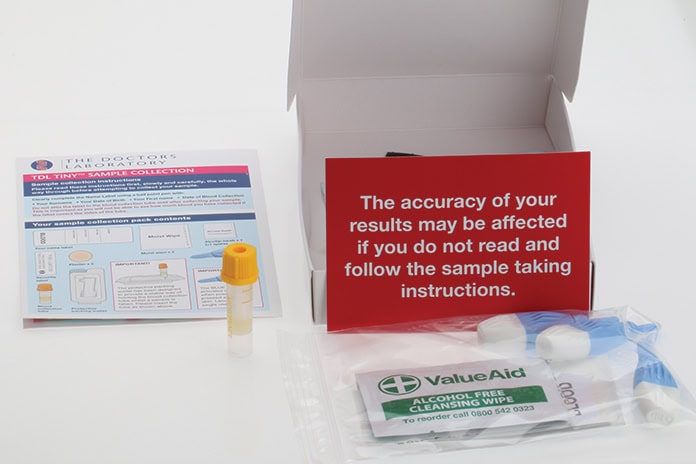Online testing for HIV is a quick, discreet and straightforward process, providing highly reliable and accurate results.
National HIV Testing Week is a great incentive to get tested and find out what your status is. Feeling apprehensive about testing is totally understandable, but people who are diagnosed early and take effective treatment can expect to live normal, healthy lives. Determining what your status is also means that you can avoid passing the virus on to other people, should the result be positive.
Online HIV testing kits can provide you with a result in as little as 15 minutes, and only a small drop of blood from your finger is required. Treated.com offers a number of test kits for HIV: the BioSure HIV Self Test kit, a HIV Lab Test Kit, and a 4-in-1 Lab Test kit. The BioSure Self Test is 99.7% accurate and provides you with an outcome within 15 minutes. The HIV Lab Test Kit works slightly differently (you send a finger prick sample of blood to our pathology specialists for analysis in a prepaid envelope) but once the lab receives it, the turnaround time for test results is relatively fast: four hours. They’ll inform you by text or email (whichever you prefer) that your result is available and you can view it by logging into your secure patient area.
The 4-in-1 Test Kit works in the same way as the HIV Lab Test Kit, but tests for syphilis, Hepatitis B and Hepatitis C, as well as HIV. They typically recommend that you test for all four of these conditions if you think you may have been exposed to any of them. The HIV Lab Test Kit and the 4-in-1 Test Kit, like the BioSure kit, are extremely accurate; provided you follow the instructions that come up with these test kits, the results are as reliable as those that you would get through the NHS.
So why choose Treated.com over other online providers of test kits? While their products are not free of charge, they’re offering people a very discreet and convenient means of getting tested for HIV. You may prefer testing yourself, independently, in the convenience of your own home, rather than at a sexual health clinic, an HIV testing centre or at a doctors’ surgery. Sexual health centres, testing centres and GP practices do however provide tests for free, so it really is a matter of personal preference.
Find out more about their range of test kits at Treated.com
HIV Testing: How often and why you should get checked
- Gay, bisexual and other men who have sex with men should get tested for HIV (and other STIs) at least every 12 months, and every 3 months if having sex without condoms, with new partners or casual partners.
- An estimated 103,800 people were living with HIV in 2018 in the UK. 93% of these people were diagnosed, but this means that approximately 1 in 14 people living with HIV do not know they have the virus.
- Anybody can get HIV, but people from certain groups or parts of the world are more likely to have it. Men who have sex with men and the black African population are disproportionately impacted.
- 4,484 people were diagnosed with HIV in the UK in 2018. Of these, 43% were gay or bisexual men.
- 43% of people who were diagnosed with HIV in 2018 were diagnosed late. Amongst gay and bisexual men, 33% were diagnosed late.
- In 2018, there was a drop of 6% in new diagnoses as compared with 2017, and a 28% drop as compared with 2015 – but we must keep improving.
- For the first time, in 2017, the UK achieved the UNAIDS 90-90-90 target: 92% of people living with HIV were diagnosed, 98% of those diagnosed were on HIV treatment and 97% of those on treatment had an undetectable viral load. This is really encouraging, but it’s vital that we keep it up and improve further.
Statistics collected from Terrence Higgins Trust. HIV Statistics. 2019. and National AIDS Trust. HIV in the UK Statistics – 2018. 2018.
















